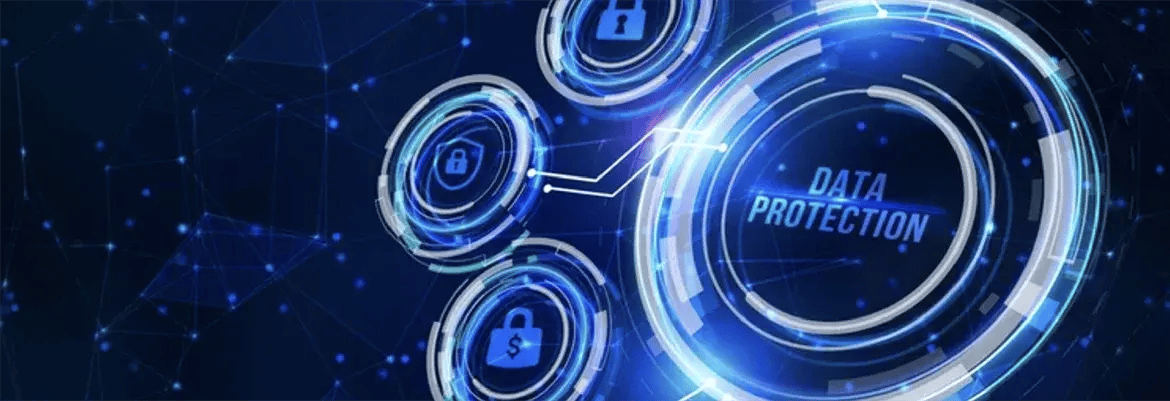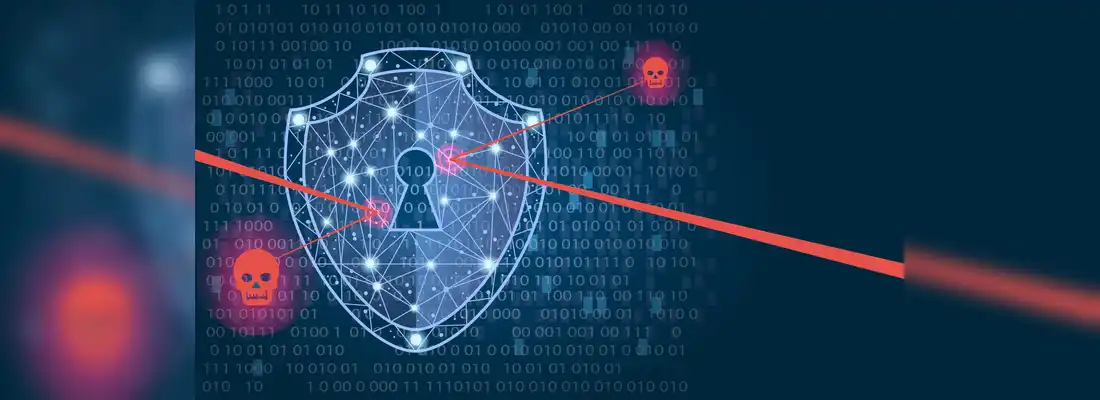Online Data Protection - What, Why & How?
Date: 26 October 2022

Data is the new gold. Every business out there is looking for precious customer data on which to base their marketing endeavours, engineer new products and target the correct audiences. Therefore, protection of data and preventing the misuse of sensitive personal information has become extremely critical in the digital age.
It is not only important for businesses to prioritise the safety of sensitive customer data but also for individuals to be more mindful of their data safety.
What is Personal Data?
Personal data is your personal identifier. It's that data that is unique to you and makes you identifiable directly or indirectly. Lots of people still don't care that personal data is prone to be misused by criminals on the internet. Although in reality, personal data theft is highly dangerous and can compromise your sensitive information to a vast degree.
For businesses, it is important to pay attention to the security of the personal information they store and process, especially if they come under the purview of the General Data Protection Regulation or GDPR. Many businesses choose to hire cybersecurity experts through flexible formats like the Virtual Cyber Assistant with the assistance of GDPR software to ensure they meet GDPR compliance requirements. This also helps them improve their data protection and risk management over time.
Weak data protection in some countries has resulted in widespread data leaks of citizen information. This is evidenced by the frequent occurrence of cybercrime cases, such as hacking and cracking (piracy) social media that leads to personal data breaches, extortion, online fraud via cell phones, and many others.
Activities in the digital space require personal data because we do not meet each other physically, so data becomes an online identifier. Leakage of personal data can lead to a crime because once the hackers get it, your virtual tracks can always be traced and misused.
In the case of businesses, a breach of personal customer or employee data can be the start of serious cyber attacks or ransomware attacks on critical infrastructure. This information involves the date of birth, cell phone number, password, and other identifications.
Why Is Personal Data Protection Important?
In terms of online cybersecurity, there are five main reasons why it is important to protect personal data, namely:
- Prevent gender-related online bullying;
- Prevent misuse of personal data by irresponsible parties;
- Avoid potential fraud;
- Avoid potential defamation; and
- Gain the right of control over personal data.
Online fraud is happening every minute with hackers coming up with new and more advanced techniques all the time. Often victims are people who do not have any knowledge about this or also those who are not aware or trained enough in cybersecurity.
Every business must educate their staff in the importance of online personal data protection. They should help their employees understand how their online activity affects them and the business. Staff should also be given basic Cyber Incident Response training so they know what to do in case they feel they’ve clicked on a malicious link or downloaded an infected attachment.
Many social media applications that provide two-step verification features, backup codes, and e-mail notifications if other parties access our social media. We need to enable these features to avoid something bad from happening.
As a smart society and business community, we must be literate in digital literacy, willing to apply the culture of reading to ourselves, and double checking for any information received.
It is also advised to have an additional layer of protection, which can be obtained through VPN. Virtual Private Network works wonderfully to mask your IP so anyone wouldn’t know about your location. We recommend the best ones in the market. For further information, you can see this in-depth ExpressVPN review from Wizcase. See whether it’s suitable for you or not by considering the price and the services.
Simple Tips to Make Personal Data Secure
While online risk management can sound like a complicated subject, there are many things you can do on an individual basis to keep your information safe. Here are a few simple steps everyone can take to make their personal data more secure on the internet:
1. Create a Password and PIN as Strong as Possible
We always recommend making passwords and PINs as strong as possible, using a combination of uppercase, and lowercase letters, special characters, and numbers. You also must regularly change some passwords and PINs to prevent your account from being hacked. Also avoid using easily guessed passwords such as “12345” or your birth date etc.
2. Get Used to 2FA Activation
We must also enable 2FA (Two Factor Authentication) or two-factor authentication. 2FA wherever applicable. This is a way to protect personal data that is classified as safe because when we log in to a certain account, there will be an OTP (Time Password) code sent outside of the password. The code is sent via e-mail or SMS. So, don't forget to activate 2FA.
3. Have More Than One Email
Having multiple email accounts is highly recommended to support 2FA. In addition, some digital platforms are currently required to include a backup email. The goal is that you’ll get notifications on the alternate email when someone else breaches your first account or there are indications of an account break-in.
-
Be Careful in Giving Access Permissions
You also have to be careful about granting access to some digital platforms to maintain data security. Access permissions usually appear for photo and video gallery, camera, microphone, and others. If you feel unsure and suspicious about granting access, simply don't give access to the application.
-
Don't Post Personal Information on Social Media
If you could, do not post any information related to personal data on social media. If you want to post, sensor some important data so your personal information can remain private. It's safer not to post your personal information, such as your personal credentials, address, or phone number that identifies an individual.
Most people probably use social media today; it’s inevitable. Although some choose to be private by creating private accounts, more people decide to share everything about their life on the internet. They even share personal things like relationships, their cultural or social identity, political views, etc., without worrying about getting hacked. And this is what you need to avoid.
You may create anything you want, but remember to keep your personal matters private. To further protect you from personal data theft, creating a private account that only allows close friends to see your profile is the best.
6. Regularly Clean Cookies
The next way to protect personal data is to clean cookies regularly. Why should you regularly clean cookies? Because these cookies store important data and information about us while using or accessing certain websites on the internet.
Conclusion
Maintaining the sanctity of personal and business data is seriously critical today. As we said in the beginning, data is the new gold and everyone is looking for it to harness its benefits for good and harmful purposes. It is best to start putting basic data prevention measures in place and securing your sensitive and personal information at the earliest.





-1.webp)
